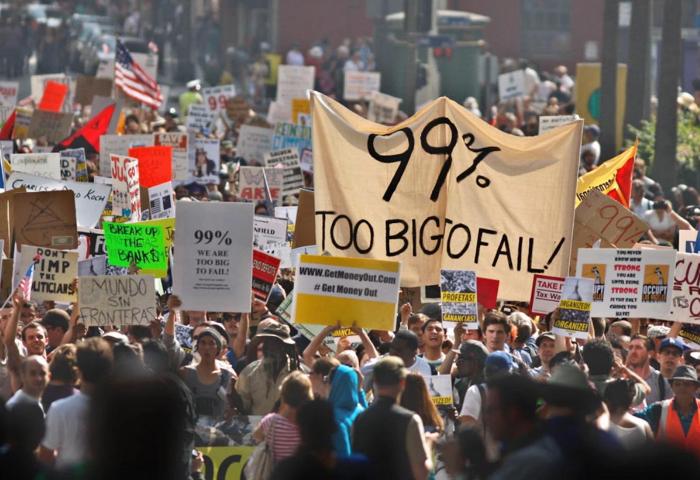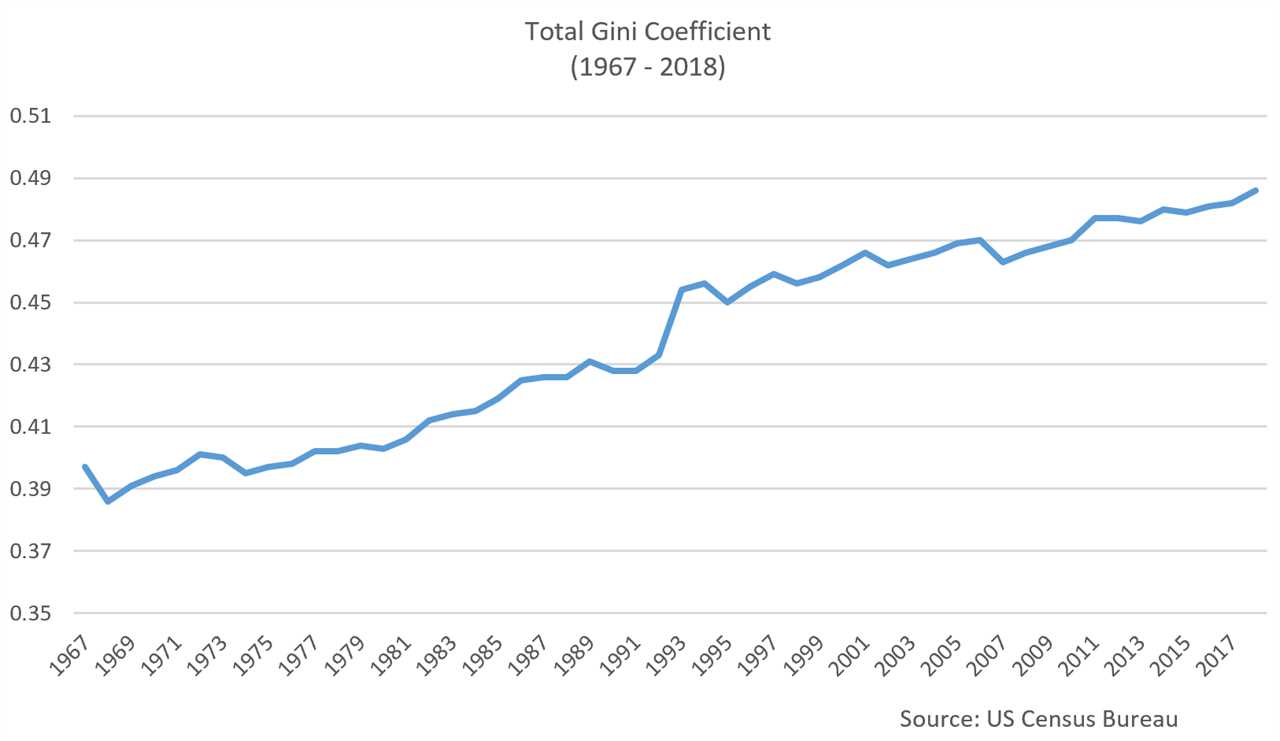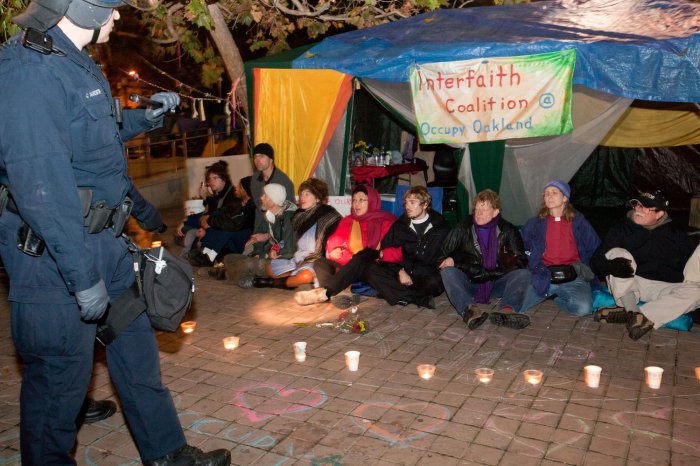
It’s 10 years ago September 17 that Occupy Wall Street commenced, and the decennial is a good time to see how (or whether) it mattered.
Kai Ryssdal interviewed me at Marketplace about just this issue, and politely asked me the obvious and critical hard question. (The whole interview is only 5 minutes, and you can click on it above.) The question: so, Occupy Wall Street protested against inequality, and ten years later it’s worse. Eh?
This is true. Here’s a graph of a measure of inequality (Gini coefficient) in the US from 1967 to 2018. The important thing to know is that the higher the number, the less equal the society. Or, the important thing to know is that the US is far more unequal than every other rich country. Or, the important thing to know is that Occupy’s emergence in 2011 came after an extended period of growing inequality, and inequality continued to grow–even after 10 weeks of Occupations across the US.

I wrote about Occupy a lot while it was taking place, but the last time here was in 2015, when I was assessing influence and trying to explain that the business of changing the world takes a long time, and activists need to link a sense of urgency with some kind of abiding faith and patience. The NAACP formed in 1908, started winning legal victories thirty years after, and saw legislative achievements in the 1960s. Yipes!
We tell shorter stories about movements (Rosa Parks sat down, the world stood up) because we lack patience and context, and the shorter stories are more inspiring.
So, how do we assess Occupy if it takes so long to find those measurable results in the Gini coefficient?
First, we have to remember that sometimes movements grow up to play defense, and Occupy didn’t come out of nowhere. Occupy followed the Arab Spring (fall 2010), the Madison, Wisconsin occupation of February 2011 (which failed to stop Scott Walker’s efforts to cripple organized labor), the 15M Indignados in Spain, and the Israeli summer protests for greater government attention to social welfare.
Occupy also followed the Tea Party movement in the United States, which failed to stop passage of the Affordable Care Act (Obamacare), but helped the Republicans make massive gains in the 2010 election, gaining control of the House of Representatives. Occupy came when things seemed to be getting much worse much faster.
And they could have. When the Republicans made similar gains after the first two years of the Clinton’s administration, Bill Clinton turned right, cut spending and programs, most notably AFDC (“welfare”), and saved himself.
President Obama might have done exactly the same thing, and just after the election, he talked more about the deficit and much less about ambitious policy reforms. In April of 2011 he gave a big speech about fiscal discipline. But a couple of months of Occupations was enough to convince Obama and his allies that there was an opposition to Republican reforms and support for more egalitarian policies that he could tap into.
On December 6, shortly after the last of the Occupations had been cleared out, Obama gave a bigger speech at Osawatomie, Kansas, affirming a commitment to reducing inequality and promoting economic justice:
I’m here in Kansas to reaffirm my deep conviction that we’re greater together than we are on our own. I believe that this country succeeds when everyone gets a fair shot, when everyone does their fair share, when everyone plays by the same rules. (Applause.) These aren’t Democratic values or Republican values. These aren’t 1 percent values or 99 percent values. They’re American values. And we have to reclaim them…. Inequality also distorts our democracy. It gives an outsized voice to the few who can afford high-priced lobbyists and unlimited campaign contributions, and it runs the risk of selling out our democracy to the highest bidder. … it’s wrong that in the United States of America, a teacher or a nurse or a construction worker, maybe earns $50,000 a year, should pay a higher tax rate than somebody raking in $50 million. (Applause.) It’s wrong for Warren Buffett’s secretary to pay a higher tax rate than Warren Buffett.
So, credit Occupy on the defense with an important stop.
And score a win in political rhetoric.
Not enough, but not nothing—and more to come….tomorrow.

----------------------------------------
By: David S. Meyer
Title: Occupy at 10 (1/x)
Sourced From: politicsoutdoors.com/2021/09/16/occupy-at-10-1-x/
Published Date: Fri, 17 Sep 2021 00:27:44 +0000






